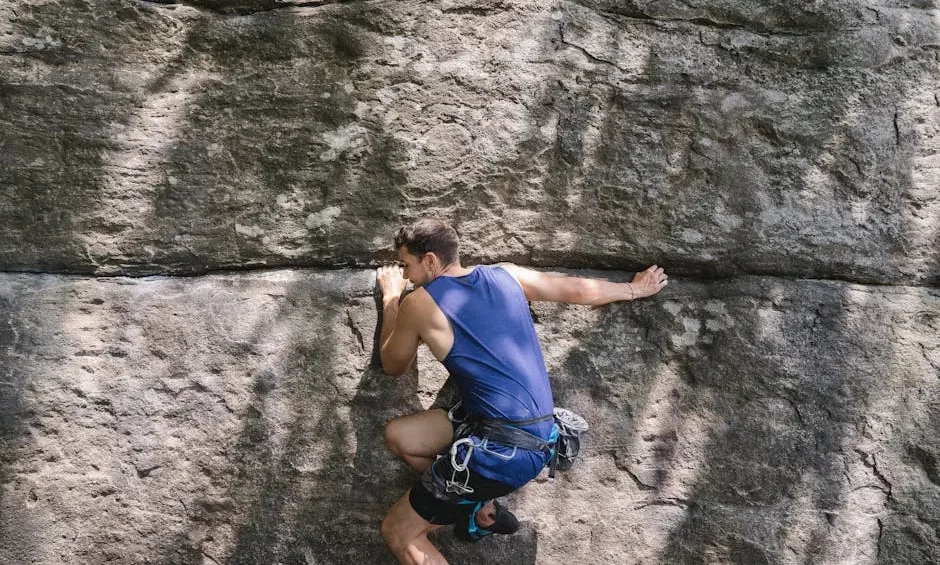Rock climbing tours offer an exciting opportunity for adventure seekers. However, many beginners often question if these tours are suitable for them. In this blog, we will explore various aspects to help you determine whether rock climbing tours are a good fit for beginners.
Understanding Rock Climbing Tours
Rock climbing tours are organized excursions that provide climbers with guided experiences on various rock formations. They often cater to different skill levels, including beginner climbers.
The heart of rock climbing tours is the combination of structured learning and real-world application. These tours are designed to show newcomers the ropes, literally and figuratively, in a serene and encouraging manner. While the idea may seem daunting at first, each tour offers a unique opportunity for climbers to build their skills in a safe environment. You’ll find a helpful mix of education and adventure, ensuring that your first foray into this exciting sport is both knowledgeable and inspiring.
Often led by experts, rock climbing tours not only teach you technical skills but also share insights into local climbing history and geology. This immersive experience amplifies the joy of learning to climb while exploring spectacular natural landscapes. For instance, the guided trips with Broadmoor Outfitters provide an excellent introduction to this sport, allowing you to appreciate both the challenge and the beauty of climbing.
Choosing Beginner-Friendly Tours
When selecting a rock climbing tour, look for those advertised as beginner-friendly. These tours should offer training sessions, easy climbing routes, and a focus on teaching the basics of climbing.
Beginner-friendly tours generally feature less complex climbing routes that allow newcomers to become accustomed to climbing without feeling overwhelmed. These tours should emphasize skills such as knot-tying, belaying, and safe climbing techniques. A good starting point is opting for tours that offer an instructional component. Guides will likely spend time demonstrating and explaining how to use climbing gear, while also covering essential safety protocols.
For those starting their climbing journey, guided rock climbing trips with experienced instructors are invaluable. Not only do they provide the necessary equipment, but they also offer a structured learning environment where you can gradually build your confidence.
Ensuring Safety and Guidance
Safety is paramount in rock climbing. Beginners should ensure that the tour provides appropriate safety gear and experienced guides who can offer assistance and advice throughout the climb.
Ensuring your safety during a climbing tour starts with utilizing professional guidance. Tour operators typically supply all necessary safety gear, including helmets, harnesses, and climbing shoes. Certified guides lead each tour, offering their expertise and knowledge to create a secure environment.
It is crucial to communicate openly with your guides, asking questions or clarifications about any aspect of the climbing process. They are trained to provide reassurance and adapt climbing challenges to suit individual comfort and skill levels. Additionally, guides on beginner-friendly tours often give a comprehensive safety briefing and monitor climbers closely, ensuring everyone’s well-being.
Before embarking on a tour, familiarize yourself with basic climbing terms and gear, which can enhance your understanding and safety on the climb. Knowledge about your climbing site is equally important. Knowing the terrain and any geological features that may impact the climb will further ensure a successful expedition.
Preparing Yourself Physically and Mentally
Physical preparation through strength and flexibility exercises can enhance your climbing experience. Equally important is mental preparation, building confidence and overcoming any fears associated with heights.
While climbing tours provide the necessary training, personal preparation should not be overlooked. Physical readiness involves developing core strength, flexibility, and endurance. Simple exercises such as yoga and weight training can significantly benefit climbers by improving balance and reducing the risk of injury.
Mental resilience is just as vital as physical fitness when it comes to climbing. Mindfulness practices, such as meditation, can help manage fear and anxiety, especially if you are apprehensive about heights. Positive visualization techniques can also be effective, allowing you to mentally navigate the climb and boost your self-assurance.
Understanding that rock climbing is as much a mental sport as it is physical can transform your perspective. As you tackle various climbing challenges, cultivating a mindset focused on persistence and problem-solving will serve you well. Prepare yourself by embracing the highs and lows of the learning process, knowing that each climb builds your skills and self-confidence.
Conclusion: Ready to Start Your Climbing Adventure?
In conclusion, rock climbing tours can be an exhilarating experience for beginners when approached with the right knowledge, preparation, and guidance. By choosing the right tour and following safety guidelines, beginners can safely and enjoyably partake in this thrilling adventure.


